Workshop Speakers
Strengthening Science-to-Action Collaboration for Food Systems Transformation in an Uncertain Climate

Diets, Nutrition, and Health
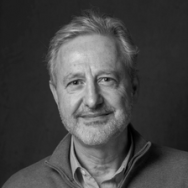
Patrick Webb
Keynote Address: Diets at the Interface Between Human and Planetary Health
Professor Patrick Webb is a scholar-practitioner who has worked extensively on food security policy and practice, nutrition, agricultural development, and climate and environment interactions with food systems. He worked for 9 years at the International Food Policy Research Institute (IFPRI), and responded to many humanitarian emergencies for the World Food Programme of the United Nations (where he was Chief of Nutrition). He currently serves as Technical Adviser to the Global Panel on Agriculture and Food Systems for Nutrition (Glopan) and was recently named as one of the new Commissioners for the Eat-Lancet Commission 2.0 which is refining the scientific basis for defining dietary patterns to better sustain both human and planetary health.
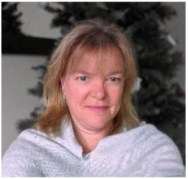
Gina Kennedy
Plenary: What Does the World Eat and Why? Understanding Diet, Nutrition and Consumer Demand
Dr. Gina Kennedy is a Senior Technical Specialist in Diet Quality Assessment with the Global Alliance for Improved Nutrition (GAIN). Dr. Kennedy has served as the Director of Food Systems for USAID Advancing Nutrition, Senior Scientist with Bioversity International in the Healthy Diets from Sustainable Food Systems Initiative and has worked for the Nutrition Division of FAO. She is also Chair of the IUNS Task Force on Traditional and Indigenous Food Systems and Nutrition. She is passionate about food biodiversity to improve diets. Her research interests include dietary diversity and diet quality and use of biodiverse foods to create healthier diets for all. She obtained a Bachelor of Science in Nursing from Georgetown University, a Master of Public Health from the University of Alabama, Birmingham and a PhD in Public Health Nutrition from Wageningen University and Research.
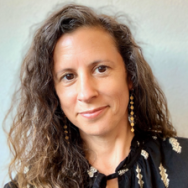
Jessica Fanzo
Plenary: Using Food Systems Data and Diagnostics to Spark Action
Jessica Fanzo, PhD is the Bloomberg Distinguished Professor of Global Food Policy and Ethics at Johns Hopkins University. She holds appointments in the Nitze School of Advanced International Studies (SAIS), Berman Institute of Bioethics and the Bloomberg School of Public Health. She serves as the Director of Hopkins’ Global Food Policy and Ethics Program, and as Director of Food & Nutrition Security at Hopkins’ Alliance for a Healthier World. From 2021 to 2022, Jess was the Vice Dean of Faculty Affairs at SAIS. She leads on the development of the Food Systems Dashboard and the Food Systems Countdown to 2030 Initiative, in collaboration with GAIN. Jessica was the Editor-in-Chief for the Global Food Security Journal and Associate Editor for the American Journal of Clinical Nutrition. From 2017 to 2022, she has served on various collective endeavors including Food Systems Economic Commission, the Cornell Atkinson Center’s Socio-Technical Innovation Bundles for Agri-Food Systems Transformation report, the Global Panel of Agriculture and Food Systems for Nutrition Foresight 2.0 report, and the EAT-Lancet Commission. She was also the Co-Chair of the Global Nutrition Report and Team Leader for the UN High-Level Panel of Experts on Food Systems and Nutrition. Jess’s research focuses on sustainable food systems and their impacts on healthy and equitable diets in resource constrained contexts.
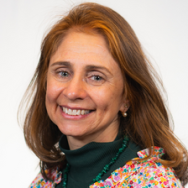
Pamela Koch
Plenary: Can Food and Nutrition Education Advance Climate Justice and Health?
Pamela Koch, Mary Swartz Rose Associate Professor of Nutrition and Education, faculty director of the Laurie M. Tisch Center for Food, Education & Policy, and Co-director of the Center for Sustainable Futures at Teachers College, Columbia University. Pam has a BS and MS from Rutgers University and an EdD and RDN from Teachers College Columbia University. Pam conducts research with schools and communities to give people power to demand healthy, just, sustainable food. She translates her research into curricula for school teachers, recommendations for policy makers, and resources for advocates. She has evaluated many school-based programs that improve school meals, create school gardens, conduct cooking sessions, and promote food justice. Pam is an active member and past president of the Society for Nutrition Education and Behavior and a member of the Agriculture, Food and Human Values Association. Pam received a teaching award from Teachers College in Spring, 2021.

Environment and Climate
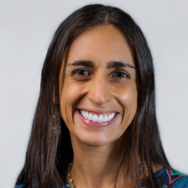
Ana Maria Loboguerrero
Keynote Address: Transforming Food Systems Under Climate Change Through Innovation
Dr. Ana Maria Loboguerrero is a Colombian scientist that holds a Master and a PhD on Economics from University of California, Los Angeles, USA (UCLA). Dr. Loboguerrero is Research Director of Climate Action for the Alliance of Bioversity International and International Center for Tropical Agriculture - CGIAR (Italy). In this position, Ana Maria provides strategic leadership of the Alliance’s Climate Action Research Program to mainstream climate action in food systems for adaptation and mitigation. She has more than 13 years’ experience of working on climate change challenges. Through her work, Dr. Loboguerrero has contributed to strengthen the agricultural sector around the world to build resilience against climate variability and extremes. Ana Maria has used her experience working in the public sector to become a key partner of policy makers and planners so that they truly use climate information and tools to design and implement plans and strategies and find ways to make climate information useful and applicable for end-users. Dr. Loboguerrero research agenda takes an interdisciplinary approach using both quantitative and qualitative methods and theories from social and natural sciences to address some of the fundamental challenges imposed by climate change in the Global South. She has concentrated on developing research projects to explore means of creating dialogue between researchers and farmers that would provide farmers with options to build resilience in the face of both short- and longer-term variations in climate.
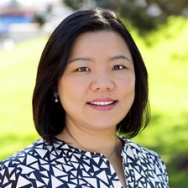
Ying Wang
Plenary: Collaborative Partnership in the Decade of Agriculture
Dr. Ying Wang has over two decades of experience in sustainability research and environmental assessment of food systems. Dr. Wang is the Science Director for US Farmers and Ranchers in Action leading the Science Sense Program. She also is an adjunct professor for the University of Illinois at Urbana-Champaign. Preciously, Ying worked for the Innovation Center for U.S. Dairy where she was Vice President, Sustainability Research and Food Systems. In this role she led the carbon and accounting framework for setting goals and targets for the U.S. Dairy sector. She also led the lifecycle inventory work, and science for the development of the Farmer Environmental Stewardship tool. Prior experience includes Program Manager, Global Supply Chain Environmental Sustainability at Kraft Foods. She has served as Co-Chair for the UN FAO LEAP Large Environmental Assessment Guide Technology Advisory Group; Sustainability Lead for International Dairy Federation. Ying has her BS in Analytical Chemistry from Lanzhou University, MS in Physical Chemistry from Lanzhou Institute of Chemistry & Physics, PhD in Polymer Chemistry and Physics from Sun Yat-Sen University, MS in Environmental, Health and Safety Management from Rochester Institute of Technology.
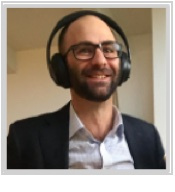
Avery Cohn
Plenary: Catalyzing action on food systems and climate
Dr. Avery Cohn directs the food and agriculture program at ClimateWorks Foundation and is a member of the leadership team of the Climate and Land Use Alliance. Prior to ClimateWorks, Avery had a 15-year career doing research and policy work on food systems and climate with a particular focus on the nexus of tropical forests, agricultural systems, and climate change. He was a postdoctoral fellow at National Center for Atmospheric Research and a professor at Tufts University, where he retains an affiliation. He is also an Honorary Research Associate at the University of Oxford. He has advised international organizations, governments, businesses, and philanthropic foundations and he has authored over 30 scientific publications. Avery holds a B.S. from the University of California Davis, a master’s from the Yale School of Forestry, and a Ph.D. from the University of California, Berkeley.
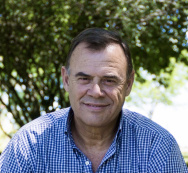
Walter Baethgen
Panelist
Walter E. Baethgen is Senior Research Scientist, Director of the Regional and Sectoral Research program in the International Research Institute for Climate and Society (IRI) at the Columbia Climate School, and served as Acting Director of the Agriculture and Food Security Center at The Earth Institute, both at Columbia University. He is the Co-Chair of the Climate School’s network on “Healthy and Sustainable Food Systems”. In 2020 he became the Vice-president of the Board of Directors of INIA (Uruguayan National Agricultural Research Institute). He has established regional research and education programs that aim to improve climate risk assessment and risk management in agriculture, health, water resources, and natural ecosystems. Baethgen acted as a consultant for the World Bank, Inter-American Development Bank, United Nations (UNDP, UNIDO, FAO, IAEA), and the Inter-American Institute for Agricultural Cooperation. He has also acted as a consultant to governments and the private sector in several countries throughout Latin America. He was an author in IPCC’s Second, Third and Fourth Assessment Reports and he was a member of the IPCC team that received the Nobel Peace Prize in 2007. Baethgen obtained his PhD and M.Sc. degrees in Crop and Soil Environmental Sciences from Virginia Polytechnic Institute and State University, and his B.Sc. in Agricultural Engineering from the University of Uruguay. He has over 150 publications to his credit.

Livelihoods, Poverty, and Equity
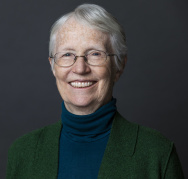
Cynthia Rosenzweig
Keynote Address: Assessment for Action: Recent AgMIP Projects
Dr. Cynthia Rosenzweig is a Senior Research Scientist at the NASA Goddard Institute for Space Studies and the co-located Columbia University Climate School’s Center for Climate Systems Research. Dr. Rosenzweig’s specific area of expertise is climate change and food systems. At NASA GISS, she heads the Climate Impacts Group whose mission is to investigate the interactions of climate (both variability and change) on systems and sectors important to human well-being. Dr. Rosenzweig is the co-founder and member of the Executive Committee of the Agricultural Model Intercomparison and Improvement Project (AgMIP), a globally integrated transdisciplinary study of climate change and the food system at regional, national and global scales, including the participation of over 1000 leading researchers from developed and developing nations. She has developed new methods of detection and attribution of observed changes in physical and biological systems to anthropogenic greenhouse gas emissions and pioneered research on the impacts of and adaptation to climate change and climate variability. In 2019, Dr. Rosenzweig was Coordinating Lead Author of the Food Security Chapter for the IPCC Special Report on Climate Change and Land. She is the 2022 recipient of the World Food Prize, considered as the “Nobel Prize for Food and Agriculture.”
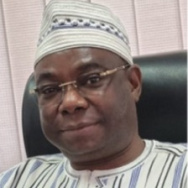
Abdou Tenkouano
Plenary: Harnessing Partnerships in the Discovery to Delivery Ecosystem in West and Central Africa
Dr. Tenkouano is Executive Director of CORAF, the West and Central Africa Council for Agricultural Research and Development, an International not For Profit Association of National Agricultural Research and Development institutions from 23 countries, with headquarters based in Dakar, Senegal. His academic background is in crop sciences, with a PhD in Genetics (1993) and a MSc in Plant Breeding (1990) from Texas A&M University. He is a native of Burkina Faso and has worked across sub-Saharan Africa with the International Crops Research Institute for the Semi-Arid Tropics (ICRISAT), the International Institute of Tropical Agriculture (IITA) and The World Vegetable Center (AVRDC).
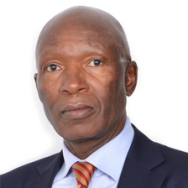
Ishmael Sunga
Plenary: Aligning Science and Innovation with Farmers’ Needs
Mr. Ishmael Sunga is the CEO of the Southern African Confederation of Agricultural Unions (SACAU) a farmers’ organization representing the common interests of farmers in 12 countries in southern Africa. In this role, Ishmael has spearheaded the organization’s work in relation to digital solutions; climate change; the development of a new generation of farmers and farmers’ organizations; multi-stakeholder platforms; systems thinking; and the governance of value chains. His wide-ranging experience and thought leadership have seen him serving a range of organizations, including the United Nations Food Systems Summit, the World Economic Forum, African Union/NEPAD, AGRA, Montpellier Malabo Panel of Experts, Food and Land Use Coalition (FOLU), CGIAR Research Program on Climate Change, Agriculture and Food Security (CCAFS), Generation Africa and the Commission on Sustainable Agriculture Intensification.
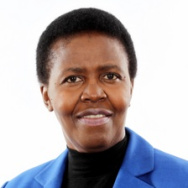
Lindiwe Majele Sibanda
Panelist
Prof. Lindiwe Majele Sibanda is a recognized leader, practicing farmer and esteemed policy advisor with a career spanning 30 years. She currently serves as Director and Chair of the African Research Universities Alliance - Centre of Excellence in Sustainable Food Systems (ARUA-SFS) at the University of Pretoria. Prof. Sibanda is also the incoming Research Chair for Sustainable Food Systems at the Future Africa Institute, University of Pretoria. She is also hosted by the University’s Centre of Advancement of Scholarship as a Senior Research Fellow. Prof. Sibanda is an SDG12.3 Champion on Reducing Food Loss and Waste and is a member of the Leadership Council of the United Nations Sustainable Development Solutions Network (SDSN) - South Africa National Network. Prof. Sibanda also sits on multiple international boards including Nestlé, World Vegetable Centre, and the One CGIAR System Board. In previous roles, Prof. Sibanda has served as the Chief Executive Officer and Head of Diplomatic Mission, Food, Agriculture and Natural Resources Policy Analysis Network (FANRPAN) and vice-President at the Alliance for a Green Revolution in Africa (AGRA). She holds a Ph.D. and MSC in Animal Sciences from the University of Reading, and BSc in Animal Sciences from the University of Alexandria, Egypt.

Governance of the Transformation that is Needed for Food Systems
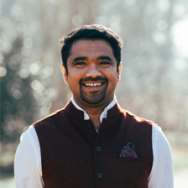
Dhanush Dinesh
Keynote Address: Building the Bridge and Bursting the Bubble – Lessons from Clim-Eat
Dr. Dhanush Dinesh is the Founder of Clim-Eat, a think and do tank to accelerate climate action in food systems, based in the Netherlands. Prior to founding Clim-Eat, Dr. Dinesh worked as Head of Partnerships and Outreach at the CGIAR Research Program on Climate Change, Agriculture and Food Security (CCAFS). His previous work experience includes roles within the private sector, NGOs, and the UN system, in China, India, Thailand, and the UK. He has worked on a range of issues including climate-smart agriculture, forestry, environmental policy, climate change adaptation, and advocacy, at the national, regional, and global levels. Dr. Dinesh holds a PhD in environmental governance from Utrecht University, and his PhD thesis offers lessons on stepping up science-policy engagement across scales for climate action in food systems. He also holds an MSc in Carbon Management from the University of Edinburgh, an MBA from PSG Institute of Management, and a Bachelor’s degree in commerce from the University of Madras.
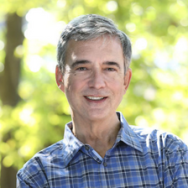
Russ Webster
Plenary: Engaging Business in the Transformation
Russ Webster is President & CEO of Food Enterprise Solutions, and Chief of Party for the USAID-funded Business Drivers for Food Safety project, a 5-year 18M Feed the Future program aiming to accelerate the adoption of food safety technologies and practices among post-harvest businesses in Senegal, Ethiopia, and Nepal. Russ has a long career promoting the private sector as a key driver for economic growth, poverty reduction, and food security. In over 40 countries across Asia, Africa, Eastern Europe, and Latin America, his work has ranged from designing and managing agriculture research, extension and rural finance programs overseas, to evaluating project impact, to advising international donor agencies and foreign governments on how to structure policy priorities, regulatory frameworks, and programs that mobilize private capital and incentivize economic growth. Having established his reputation as a strategic thinker, effective executive leader, solid team player, creative program design expert, and articulate advocate for global trade and development, Russ has turned his focus now on reducing hunger, malnutrition, and poverty by strengthening the commercial viability of micro-, small-, and medium-sized enterprises, and making them the drivers for sustainable, healthy, and accessible food systems.
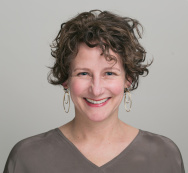
Lauren Baker
Plenary: Transparency, inclusive participation, and shared power: Governance for the Future of Food
Lauren Baker, PhD, has more than 20 years of experience leading cross-sectoral research, policy and advocacy for sustainable food systems in non-profit, academic, business, policy and philanthropic contexts. Lauren is currently Deputy Director at the Global Alliance for the Future of Food, an alliance of philanthropic foundations working to transform global food systems. At the Global Alliance, Lauren’s work is focused on the intersections between food systems and health, climate change, agroecology and true cost accounting.
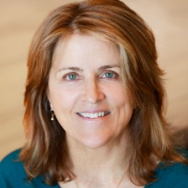
Jane Maland Cady
Plenary: Transparency, inclusive participation, and shared power: Governance for the Future of Food
Jane Maland Cady joined McKnight in 2008 as founding director of its International program. During her tenure, she has overseen grantmaking focused on equitable and sustainable livelihoods in more than 15 countries in Africa, Latin America, and Southeast Asia. Central to her work is agroecological research with smallholder farmers and natural resource rights for local communities.
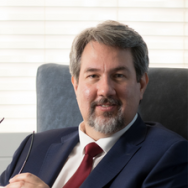
Barend Erasmus
Panelist
Professor Barend Erasmus is a South African expert in the field of climate change impacts, spatial ecology and land cover change. In 2018, he was a chapter lead author on the IPBES Global Land Degradation and Restoration Assessment, with a focus on land degradation and human wellbeing. The networks and insights from this process continues to shape and influence his thinking. He spent 16 years at the University of the Witwatersrand establishing and building the Global Change Institute (GCI). GCI is a donor-funded, interdisciplinary research entity, that focuses on helping society transform to a more sustainable future. This task requires researchers to think differently about how they work with industry, society and government, and he actively participates in this process. He joined the University of Pretoria as Dean of the Faculty of Natural and Agricultural Sciences just in time to have the pandemic as his first management challenge at the new place of work. Here he has the opportunity to direct institutional resources and strategy in support of sustainability transitions. The majority of his research output focuses on livelihood, climate, energy, agriculture and biodiversity trade-offs in a long term human demographic surveillance site, situated in a rural savannah just outside the Kruger National Park, South Africa.